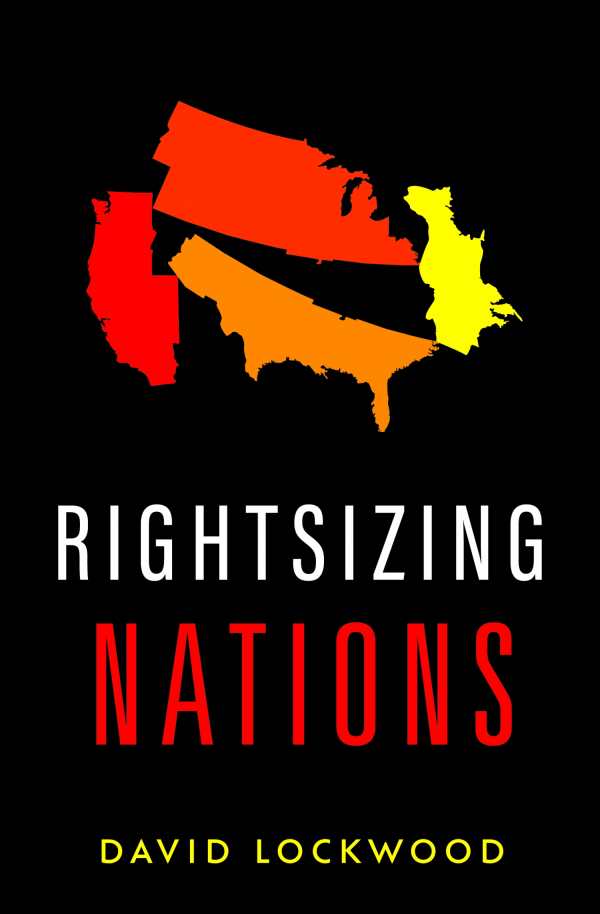Rightsizing Nations
Rightsizing Nations is an intriguing political science text that introduces timely theories about nations’ optimal sizes, supported by historical examples.
David Lockwood’s provocative political science book Rightsizing Nations theorizes about how nations’ sizes correlate to how they fare.
Lockwood argues that there is an optimum size for countries to reach. Countries that are too small cannot take full advantage of economies of scale, he asserts, while countries that are too big suffer from a wide difference in priorities among a divergent population. His book shows that there are multiple ways for a nation to compensate for its inordinate size, though, including increasing or decreasing the power of the central government in order to maximize or make irrelevant consensus among citizens. Musing through the factors that may impact a nation’s optimal size, as well as physical barriers that may the inhibit growth or reduction of a nation, the book also examines recent trends toward authoritarianism in the US and other nations that make the question of optimal size a priority.
In all, the book outlines five factors that determine a nation’s optimal size: incidence of warfare, cost of defense, freedom of trade, income inequality, and the role of intergovernmental organizations. Chapters are devoted to each of these factors, and each is explained with multiple examples from history. One of the influences on the cost of defense, for example, is shown to be the relative costs of offensive weapons. The book points out that atomic bombs, bioweapons, and antisatellite missiles are becoming less expensive and easier to obtain, the result being that larger nations (who are also larger targets) require greater resources for defense.
Such observations make Rightsizing Nations an engaging and timely book. Its other stimulating takes include the effects of the UN and other international bodies and their successes and failures at preventing war and improving relations between nations. In support of such claims, the book includes a primer on the history of these bodies, using it to show how they impacted the size of nations, with many examples from history.
The book ends up concentrating on the effects that historical forces have had on the current state of the world. Autocracy is a major concern; Lockwood attributes this to shrinking population groups and nations. His final chapter focuses on Japan, China, Russia, and the United States, assessing each nation’s health going forward based on its optimal size and unique situations. Its imagined scenarios, including ones in which the United States could break apart or come under a dictatorial regime, are rendered plausible and frightening. Still, the book leans hard into its thesis to the extent that some factors outside of a nation’s size, including religion and culture, are discounted with credulity-straining speed.
Rightsizing Nations is an intriguing political science text that introduces theories about nations’ optimal sizes.
Reviewed by
Matt Benzing
Disclosure: This article is not an endorsement, but a review. The publisher of this book provided free copies of the book and paid a small fee to have their book reviewed by a professional reviewer. Foreword Reviews and Clarion Reviews make no guarantee that the publisher will receive a positive review. Foreword Magazine, Inc. is disclosing this in accordance with the Federal Trade Commission’s 16 CFR, Part 255.

